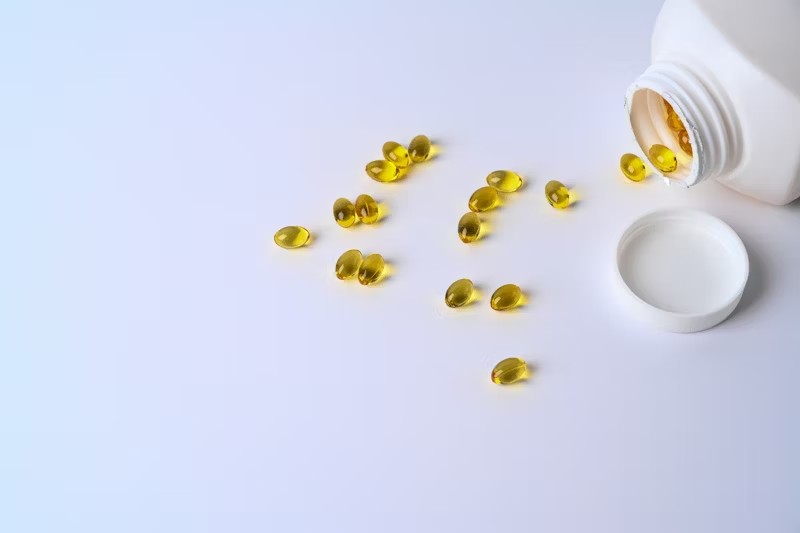
Vitamin D supplements are commonly used to support bone health, immune function, and overall well-being. Here’s a breakdown of their uses:
Bone Health: Vitamin D helps the body absorb calcium, which is essential for maintaining strong bones and preventing conditions like osteoporosis and rickets. It also aids in bone growth and remodeling.
Immune System Support: Vitamin D plays a crucial role in immune function by enhancing the pathogen-fighting effects of immune cells, like T-cells and macrophages. It may reduce the risk of infections, including respiratory diseases.
Mood Regulation and Mental Health: Low levels of vitamin D have been linked to conditions such as depression, anxiety, and seasonal affective disorder (SAD). Some studies suggest that vitamin D supplementation may help improve mood, though more research is needed.
Heart Health: There is emerging evidence that vitamin D may help reduce the risk of heart disease by supporting blood vessel function, reducing inflammation, and regulating blood pressure.
Muscle Function: Adequate vitamin D levels are important for muscle strength and function. Insufficient levels may contribute to muscle weakness or pain.
Who Might Need Supplements:
People with limited sun exposure (e.g., those living in northern latitudes or with indoor lifestyles).
Older adults, as their skin may be less efficient at producing vitamin D.
People with darker skin, as they may have a reduced ability to synthesize vitamin D from sunlight.
Those with certain health conditions that affect vitamin D metabolism, like kidney disease or Crohn’s disease.
Before starting supplements, it’s important to talk to a healthcare provider, as excess vitamin D can have negative effects, such as calcium buildup in the blood (hypercalcemia).
Food items that contains vitamin D
Vitamin D is essential for bone health, immune function, and overall well-being. While sunlight exposure is a primary source, certain foods can help you meet your vitamin D needs. Here are some notable dietary sources:
1. Fatty Fish: Oily fish are among the best natural sources of vitamin D. Examples include:
Salmon: A 3-ounce (85 grams) serving of cooked salmon provides approximately 570 IU (International Units) of vitamin D, which is about 71% of the Daily Value (DV).
Mackerel: This fish is rich in vitamin D and also offers healthy omega-3 fatty acids.
Sardines: Canned sardines provide around 193 IU per 3.5-ounce (100 grams) serving, or 24% of the DV.
Herring: Fresh Atlantic herring offers about 214 IU per 3.5-ounce (100 grams) serving, contributing 27% of the DV.
2. Cod Liver Oil: A traditional supplement, cod liver oil is exceptionally high in vitamin D. One teaspoon (4.9 mL) provides approximately 450 IU, covering 56% of the DV.
3. Mushrooms: Certain mushrooms contain vitamin D, especially when exposed to ultraviolet (UV) light. UV-exposed mushrooms can provide around 366 IU per cup (120 mL), while those not exposed offer about 7 IU.
4. Egg Yolks: Egg yolks contain modest amounts of vitamin D. One large scrambled egg provides approximately 44 IU.
5. Beef Liver: Beef liver is a source of vitamin D, with a 3-ounce (85 grams) serving offering about 42 IU.
6. Cheese: Cheeses like cheddar contain small amounts of vitamin D. A 1.5-ounce (42 grams) serving provides approximately 17 IU.
7. Fortified Foods: Many foods are fortified with vitamin D, including certain dairy and plant-based milks, breakfast cereals, and orange juice. For instance, a cup of fortified almond milk can provide around 107 IU.
Incorporating these foods into your diet can help maintain adequate vitamin D levels. However, factors like geographic location, skin tone, and sun exposure can influence your vitamin D synthesis. If you suspect a deficiency, consult with a healthcare provider for personalized guidance.
Are there any side effects of Vitamin D supplements?
Yes, while vitamin D supplements can be beneficial when taken appropriately, excessive intake can lead to side effects. Some potential side effects of taking too much vitamin D include:
Hypercalcemia: This is the most common and serious side effect of vitamin D toxicity. It occurs when there is too much calcium in the blood, which can lead to symptoms such as:
Nausea and vomiting
Weakness and fatigue
Loss of appetite
Constipation
Confusion or disorientation
Kidney stones or kidney damage in severe cases
Kidney Damage: High levels of vitamin D can cause calcium to build up in the kidneys, leading to kidney stones or other forms of kidney damage over time.
Bone Pain or Weakness: Although vitamin D is essential for bone health, excessive amounts can disrupt calcium balance and lead to bone pain or weakening over time.
Gastrointestinal Issues: Taking too much vitamin D can cause symptoms like nausea, vomiting, and constipation.
Heart Problems: In rare cases, excess vitamin D can cause irregular heartbeats (arrhythmias) or other cardiovascular issues due to high calcium levels.
Safe Dosage:
The recommended daily allowance (RDA) for vitamin D varies by age and health condition. For most adults, 600–800 IU per day is sufficient, but higher doses may be needed for people with deficiencies. It’s important to not exceed the tolerable upper intake level (UL) of 4,000 IU per day without a doctor’s supervision.
To avoid side effects, it’s advisable to have your vitamin D levels tested before starting supplementation, and always consult a healthcare provider regarding the appropriate dosage for your needs.
